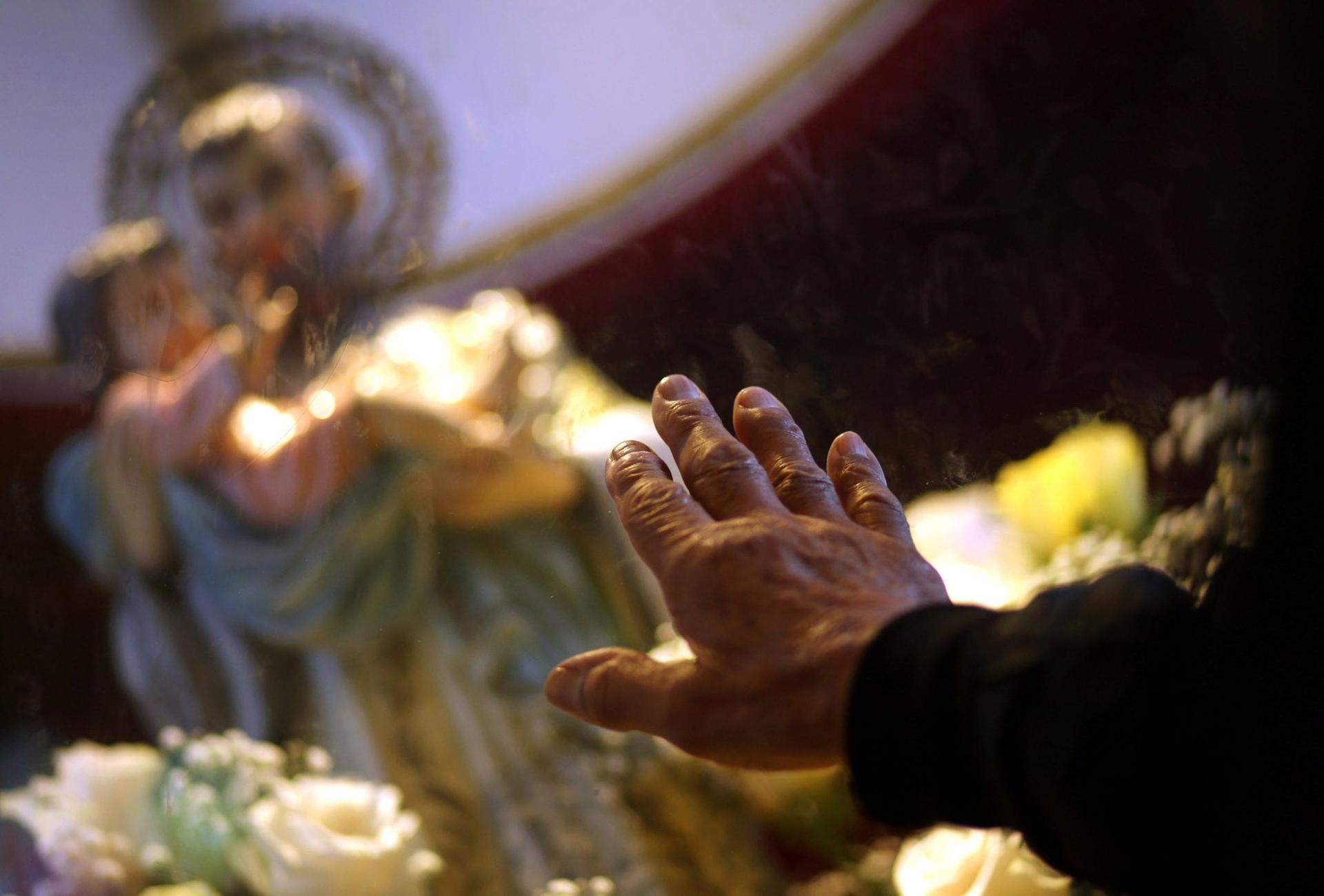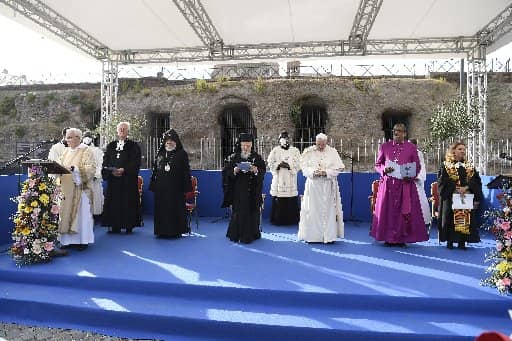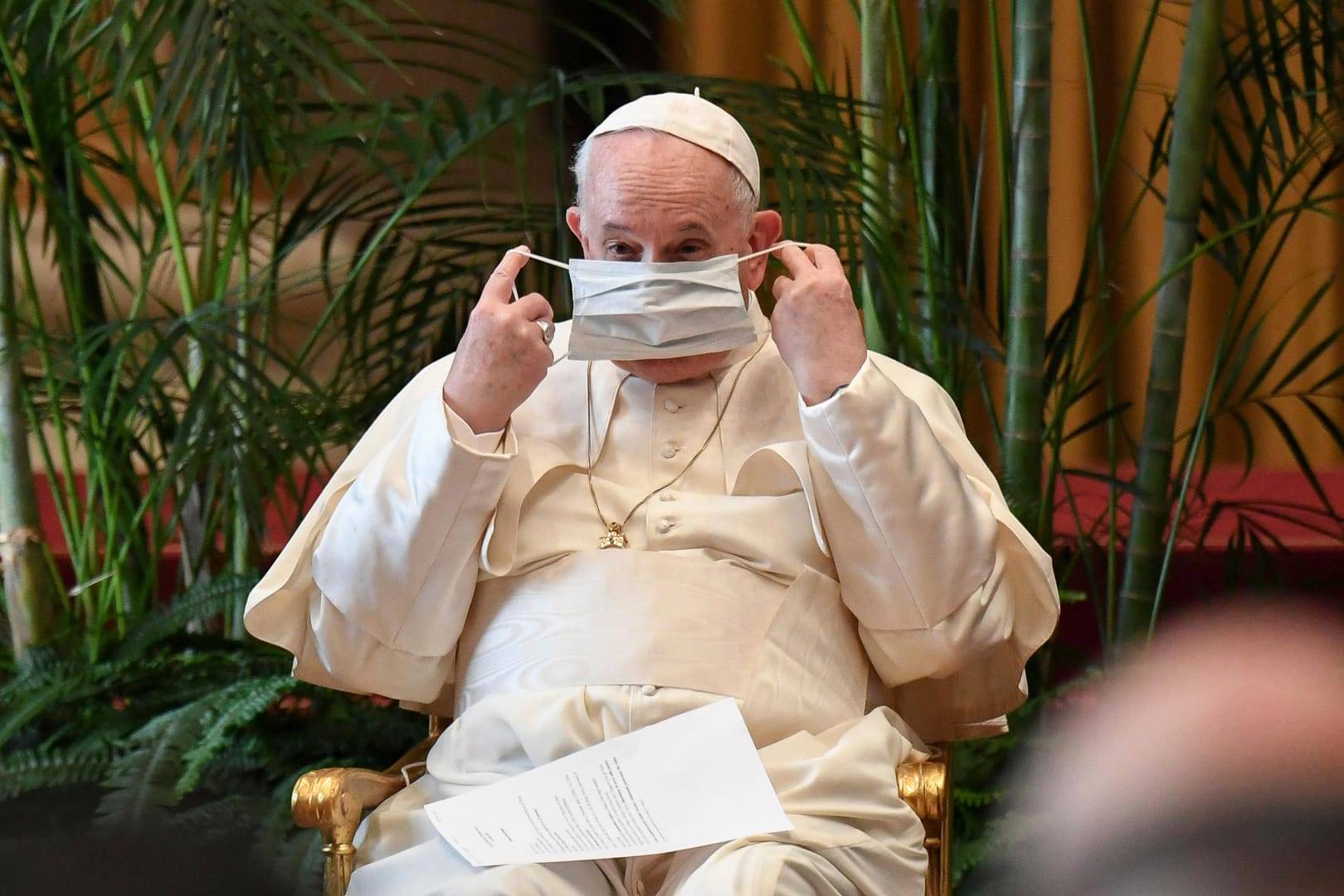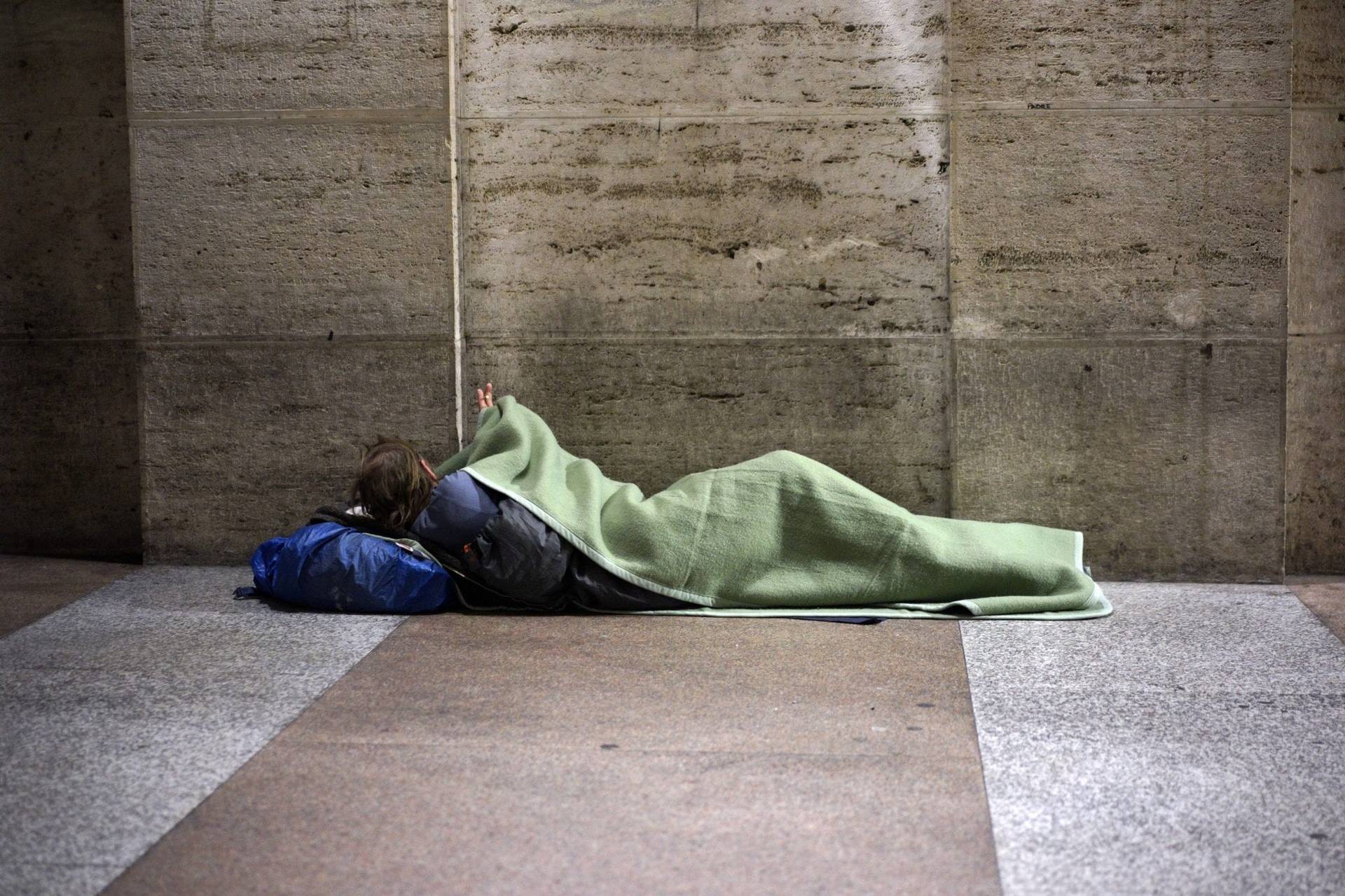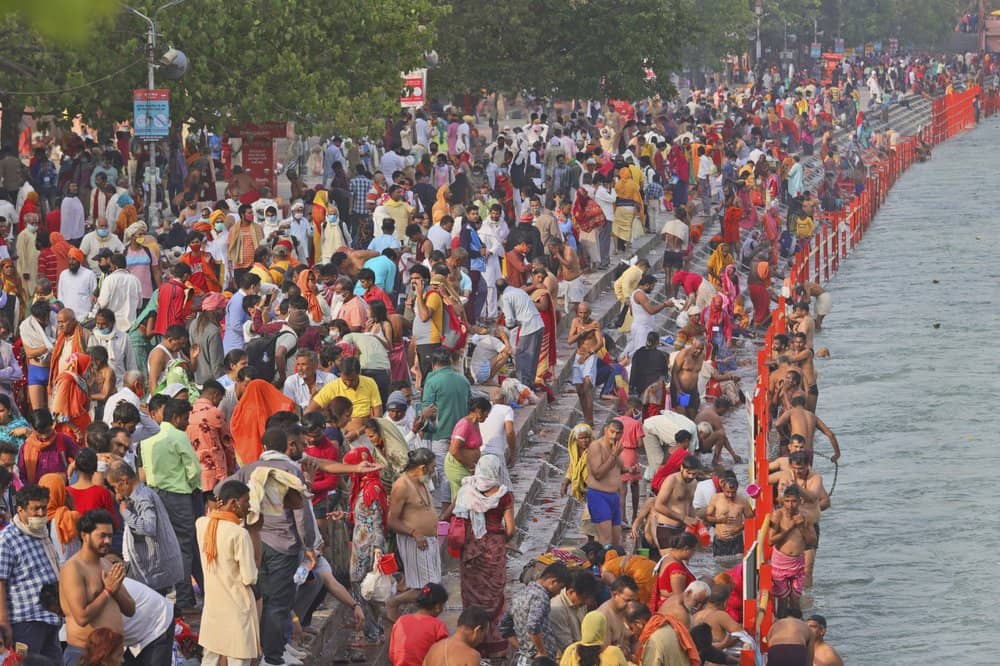ROSARIO, Argentina – Under normal circumstances, Argentina’s Catholic leadership takes pride in the vast crowds that show up every year at the Shrine of St. Cajetan, in Liniers, a neighborhood on the edge of Buenos Aires, for his Aug. 7 feast day. It’s thus a sign of through-the-looking-glass dynamics of the coronavirus that this year, they did everything in their power to persuade people not to come.
On previous occasions, thousands would spend the night waiting in line outside the church to be amongst the first ones to go in. Masses would be celebrated throughout the day, and up to a million Argentines would make the pilgrimage to the shrine. Yet to avoid the spread of coronavirus, as Argentina’s capital faces it’s fifth month of lockdown, the Catholic hierarchy mobilized online and with statements read at the end of Masses over the weekend imploring people not to go.
A 15th and 16th century Italian priest and founder of the Theatine religious order, St. Cajetan is known as Argentina’s patron saint. Pope Francis is especially attached to the devotion, and the annual feast was one of the few occasions when the beaming, jocular pontiff the world now knows was visible to his fellow Argentines when he served as Archbishop of Buenos Aires from 1998 to 2013.
Yet what this year’s celebration may have lacked in crowd size, it more than made up in political punch.
The main Mass of the day was in the hands of Francis’s hand-picked successor in Buenos Aires, Cardinal Mario Aurelio Poli, who didn’t hold back: “In the blessed land of bread, as a beautiful [Argentine Mass] song says, today we are going to ask so that no one lacks bread and has everything necessary to have a dignified life for all Argentines.”
“We will especially ask for the more than 7 million boys and girls who live in poverty, with levels of destitution that embarrass and humiliate us,” Poli said.
Due to several reasons, including the pandemic, some 50 percent of Argentina’s population of 40 million lives under the poverty line. Poli said no one should be scandalized by the situation, because “being scandalized is useless, let our hearts be moved, because we know that living in indigence, survival becomes difficult and leaves traces and marks for a lifetime.”
“In the face of this reality, we cannot be indifferent, our conscience must move us as adults, those of us who have some responsibility in today’s leadership, it must hit our conscience hard, because the lives of a generation of children, adolescents and young people who will succeed us are at stake,” Poli said.
“They are the true treasure of the Nation. They are not numbers, they are people, and they suffer, and there is pain and tears,” he said. “As the Gospel we proclaim teaches, where your treasure is, there your heart will be also.”
As the country continues to debate the legalization of abortion, Poli also noted that “it’s the promise of childhood that awaits legislation” that “favors life and never death, the death of anyone.”
Legislation, he said, should also favor work, education and justice, as well as equal opportunities for all, especially those who are more at a disadvantage.
Poli implored St. Cajetan, “holy patron of bread, you who were a lawyer and assumed the just causes of the poor of your time, help us to always be in solidarity with the most vulnerable, help us so that we also raise our voices for their causes.”
He also prayed for health workers who are in the frontline, working in hospitals, clinics and other health facilities during the pandemic.
Often considered one of the Catholic minds behind capitalism, St. Cajetan is largely venerated as the patron of bankers. The fact that he’s one of the favorite saints of a pope who has a book called This Economy Kills, is at the very least, ironic.
Born as Gaetano dei Conti di Thiene to noble parents in October 1480, in the Lombardy region, he lost his father at the age of two. He would grow up to become a doctor in both civil and canon law at the age of 24. Soon after, he began working as a diplomat for Pope Julius II, and would continue to do so until the pope’s death, following which he began studying to become a priest, eventually being ordained in 1516.
Cajetan also founded the religious Congregation of Clerks Regular, popularly known as the Theatines. One of his four companions on this task would eventually become Pope Paul IV. They lived a monastic form of poverty and prayer and lived and worked closely with the poor in order to combat the political and spiritual corruption of the times.
Concerned both for the spiritual and physical health of the poor, the saint also set up hospitals for the terminally ill and pushed for a reform in the priesthood, calling on his fellow clerics to serve and not be served.
In 1533 he moved to the southern Italian city of Naples, from where he began fighting the growth of the Lutheran heresy. It was here that he created a lending institution to help the poor, which became an alternative to usurers who charged high interest rates. This financial initiative would eventually become the Bank of Naples.
RELATED: Feast of St. Cajetan is when the future Pope Francis came out to play
On Friday, many bishops in Argentina shared their thoughts and prayers to this popular saint, including Bishop Oscar Ojea, president of Argentina’s bishops conference: “We place ourselves in the hands of St. Cajetan, above all in this time when we’re preparing to suffer very big crises. Work makes the dignity of a person.”
Father Fabián Baez, who for years served as a priest in the shrine dedicated to the saint in Liniers, told Crux that the shine is a place where “the people of God recognize a particular presence of God, and it’s also a place where the people recognize themselves as a believing people. The pandemic this year leads us to recognize that St. Cajetan, for us, is in himself a shrine.”
“This year, as we cannot go to the shrine, the saint enters our homes, through social media, through news outlets, but above all, with our faith,” he said. “Even the little old lady who doesn’t have internet, she too is lighting a candle in her home, with a prayer card, praying to St. Cajetan.”
“In the faithful people of God, two things coincide: a deep faith in God, and also, many needs: material, affective and spiritual,” Baez said. “St. Cajetan brings both of these things together, helping us recognize our lacking, but also, teaching us to trust in God. He teaches us to ask for the most essentials of things: peace, work and bread.”
Follow Inés San Martín on Twitter: @inesanma
